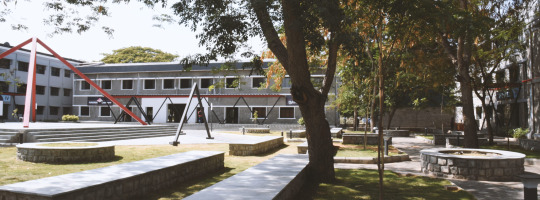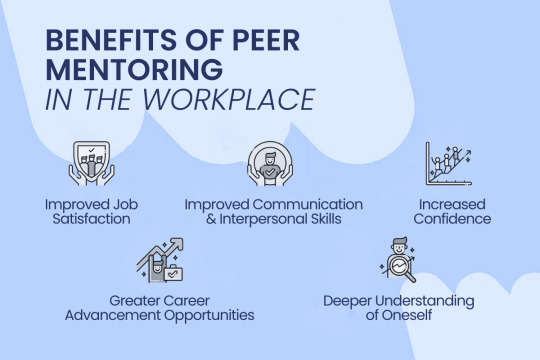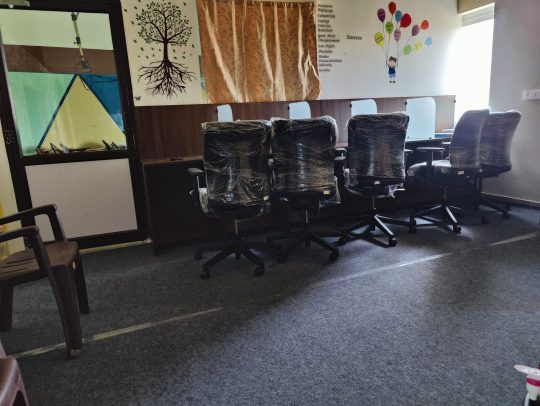#procrastination in upsc preparation
Explore tagged Tumblr posts
Text
Negative Habits to Avoid for UPSC Preparation
Imagine preparing for the UPSC exam is like setting off on a thrilling adventure. But just like any adventure, there are challenges to overcome. It takes a lot of hard work, sticking to your goals, and having a good plan. But, sometimes, even if you're really trying your best, you might find yourself doing things that could make it harder for you to succeed. In this guide, we'll explore common negative habits faced by UPSC aspirants and provide straightforward solutions to overcome them. By implementing these simple strategies, aspirants can navigate through challenges effectively and achieve success in their UPSC journey.
Procrastination - Putting Off Tasks

Procrastination is when we delay tasks or waste time on unimportant things. Many UPSC aspirants struggle with procrastination, which can lead to missed study sessions and last-minute pressure.
To overcome procrastination, break your study tasks into smaller, manageable parts. To create a sense of urgency, establish particular deadlines for every task. By taking small steps consistently, you can avoid procrastination and stay on track with your study schedule.
“You may delay, but time will not.”
― Benjamin Franklin
There are always distractions, if you allow them! Successful people remain optimistic and concentrated on their goals regardless of their surroundings. They stay focused. They avoid getting distracted, which is common in today's digital world. Social media, notifications, and other distractions can easily divert our attention away from studying.
To avoid distractions, create a dedicated study space that is free from potential distractions. Turn off notifications on your phone and use productivity tools to block distracting websites. Set specific times for studying and avoid multitasking. By minimizing distractions, you can improve focus and productivity during your study sessions.
Distractions - Losing Focus

“Work is hard. Distractions are plentiful. And time is short.”
― Adam Hochschild
Lack of Consistency

Consistency is really important for doing well in UPSC preparation. It’s key to success. However, many aspirants struggle to maintain a consistent study routine.
To overcome this, establish a daily study schedule and stick to it religiously. Make sure you stick to your study schedule and give it more importance than other things. Set realistic goals for each study session and keep checking how well you're doing. By making studying a habit and sticking to a consistent routine, you can maximize your productivity and progress in your UPSC preparation.
“Success isn't always about greatness. It's about consistency.
Consistent hard work leads to success. Greatness will come.”
― Dwayne Johnson
Neglecting Health and Adequate Sleep

UPSC preparation can be mentally and physically demanding, and many aspirants neglect their health in pursuit of their goals. However, neglecting your health can have negative consequences on your ability to study effectively. Sleep is essential for cognitive function, memory retention, and overall well-being. However, many aspirants neglect their sleep in favor of studying late into the night. This can lead to sleep deprivation, which can impair your ability to focus, concentrate, and retain information.
To prioritize your health, make sure to get an adequate amount of sleep each night. Aim for at least 7-8 hours of sleep to ensure that your mind and body are well-rested. In addition, make time for regular exercise and physical activity to reduce stress and improve overall well-being. Finally, don't forget to eat a balanced diet and stay hydrated to fuel your body and brain for studying.
Relying on One Study Method

Every aspirant has their own preferred study method, whether it's reading, taking notes, or practicing past papers. However, relying solely on one study method can limit your learning and comprehension.
To overcome this, try diversifying your study methods to engage different parts of your brain. For example, if you're used to reading, try incorporating more visual aids or discussing concepts with peers. Try out various methods of studying until you discover which one suits you the most. By diversifying your study methods, you can improve your understanding and retention of the material.
Negative self-talk can be dangerous to your confidence and motivation. Many aspirants struggle with self-doubt and fear of failure, which can hold them back from reaching their full potential.
To overcome negative self-talk, practice self-compassion and positive affirmations. Instead of focusing on your shortcomings, celebrate your achievements and strengths. Be around friends and family who support you and have faith in your skills. By cultivating a positive mindset and practicing self-love, you can overcome self-doubt and achieve success in your UPSC journey.
Negative Self-Talk - Self-Doubt

"One important key to success is self-confidence.
An important key to self-confidence is preparation."
― Arthur Ashe
Trying to Read Everything

UPSC aspirants are often overwhelmed by the sheer volume of reading material available. Many aspirants feel pressured to read every book and resource on a given topic, leading to stress and burnout.
To overcome this, focus on quality over quantity when it comes to reading. Prioritize essential books and resources that cover the core concepts and topics of the UPSC syllabus. Take notes as you read to help reinforce your understanding and retention of the material. Remember, it's better to thoroughly understand a few key concepts than to skim/go through numerous resources without grasping the core concepts.
Disorganization can hinder your ability to study effectively and efficiently. Many aspirants struggle to keep track of study materials, deadlines, and important dates.
To overcome this, create a study schedule and organize your study materials in a systematic manner. Use folders, binders, or digital tools to keep your study materials organized and easily accessible. Break down your study schedule into smaller, manageable tasks and set deadlines for each task. By staying organized, you can reduce stress and improve productivity in your UPSC preparation.
Lack of Organization

“For every minute spent organizing, an hour is earned.”
― Benjamin Franklin
Misplaced Study Groups

Study groups can be a valuable resource for UPSC aspirants, providing support, motivation, and shared knowledge. However, not all study groups are created equal, and some aspirants may find themselves in study groups that are not conducive to effective studying.
To overcome this, choose study partners wisely and find individuals who are serious and committed to their UPSC goals. Look for study groups or forums where you can engage with like-minded aspirants who share your dedication and enthusiasm for UPSC preparation. By surrounding yourself with supportive and motivated study partners, you can enhance your learning and stay on track with your UPSC goals.
Overcoming negative habits is essential for UPSC aspirants to succeed in their journey. By implementing simple strategies such as breaking tasks into smaller parts, minimizing distractions, maintaining consistency, prioritizing health, diversifying learning methods, fostering a positive mindset, finding a balance between work and study, focusing on quality reading, staying organized, choosing study partners wisely, using the internet judiciously, and prioritizing sleep, aspirants can navigate through challenges effectively and achieve success in their UPSC preparation. Remember, success in the UPSC examination requires dedication, perseverance, and a willingness to overcome obstacles. Keep pushing forward, stay focused on your goals, and believe in yourself—victory is within reach!
#upsc#education#upsc2024#upscpreparation#upscstudymaterial#quotes for upsc aspirants#quotes for students motivation#Misplaced Study Groups in UPSC Preparation#Lack of Organization in UPSC Preparation#Trying to Read Everything in UPSC Preparation#Negative Self-Talk - Self-Doubt#Relying on One Study Method#Neglecting Health and Adequate Sleep in upsc preparation#Lack of Consistency in upsc preparation#Distractions in upsc preparation#procrastination in upsc preparation#Procrastination#upsc syllabus ignorance#upsc exam strategy mistakes#ENSURE IAS coaching tips#upsc self-study bad habits#upsc time management mistakes#ENSURE IAS academy tips#upsc coaching center habits to avoid#upsc study routine mistakes#UPSC#bad habits for upsc exam#common mistakes in upsc preparation#ENSURE IAS preparation tips#negative habits for upsc aspirants
4 notes
·
View notes
Text
Crafting an Optimal Study Environment: Tips for UPSC Aspirants at Krishna PG Stays
Embarking on the journey to crack the UPSC (Union Public Service Commission) examination requires dedication, perseverance, and strategic preparation. Among the myriad factors that contribute to success, creating the perfect study environment is paramount. For UPSC aspirants residing at Krishna PG Stays, here are some invaluable tips to optimize your study space and maximize your chances of achieving your goals.
Designate a Dedicated Study Area: Establish a specific corner or room within your Krishna PG Stays accommodation as your study zone. This designated space will serve as your sanctuary for focused learning, free from distractions and conducive to concentration.

Prioritize Comfort and Ergonomics: Invest in comfortable seating and ergonomic furniture to support long study sessions without physical discomfort. Ensure that your chair provides adequate lumbar support and that your desk is at an appropriate height to promote good posture and prevent fatigue.

Harness Natural Light: Whenever possible, position your study area near a window to harness natural light. Natural lighting not only reduces eye strain but also enhances mood and productivity, creating a more inviting and refreshing study environment.
Minimize Distractions: Identify and minimize potential distractions in your study space. Keep your study area clutter-free and free from unnecessary gadgets or items that may tempt you to procrastinate. Consider using noise-canceling headphones to block out external sounds and maintain focus.

Personalize Your Space: Infuse your study environment with personal touches that inspire and motivate you. Decorate your study area with motivational quotes, pictures of inspirational figures, or vision boards outlining your career aspirations. Surrounding yourself with positive imagery cultivates a sense of purpose and determination.
Organize Study Materials Effectively: Implement organizational systems to keep study materials easily accessible and neatly arranged. Use shelves, folders, or storage bins to categorize books, notes, and reference materials, ensuring efficient retrieval when needed. A well-organized study space fosters mental clarity and streamlines the learning process.

Establish a Study Routine: Develop a consistent study routine tailored to your individual preferences and energy levels. Allocate specific times each day for focused study sessions, making optimal use of peak concentration periods. By adhering to a structured study schedule, you cultivate discipline and momentum in your exam preparation.

Stay Connected but Manage Social Interactions: While residing at Krishna PG Stays, it's essential to strike a balance between social interactions and solitary study time. Engage in collaborative study sessions with fellow UPSC aspirants to exchange ideas and insights, but also allocate sufficient uninterrupted periods for independent study and reflection.

Take Breaks and Practice Self-Care: Recognize the importance of regular breaks and self-care activities in maintaining productivity and well-being. Incorporate short breaks into your study routine to rest and recharge, whether it's taking a leisurely walk, practicing mindfulness, or indulging in a hobby. Prioritizing self-care nurtures resilience and sustains long-term motivation in your UPSC journey.

Seek Support and Guidance: Leverage the resources and support networks available to you at Krishna PG Stays and beyond. Engage with mentors, tutors, or online forums to seek guidance, clarify doubts, and stay informed about UPSC exam trends and strategies. Surrounding yourself with a supportive community fosters collaboration, accountability, and collective growth.
In conclusion, optimizing your study environment is instrumental in your UPSC preparation journey at Krishna PG Stays. By implementing these tips and customizing your study space to suit your needs, you empower yourself to study effectively, stay motivated, and ultimately realize your aspirations of success in the UPSC examination. Stay focused, stay determined, and embrace the transformative power of your dedicated study environment.
Visit Krishna PG for comfortable accommodation while preparing for your UPSC exams.
#hostel#student#upsc#accomodation#hospitality#best pg in karol bagh#PG for girls and boys#PG with food#student life
3 notes
·
View notes
Text
🕰️ Taming the Monster: Time Management for UPSC Aspirants

Preparing for UPSC? It’s not just about hard work—it's about smart ⏳time management! Here’s how to tackle the monster:
📚 Understand the Syllabus Break it down 🔍 and focus on strengths.
📝 Plan Like a Pro Set daily/weekly/monthly goals ✅ Use time blocks for each subject ⌛
📊 Prioritize Smartly Use the Eisenhower Matrix: 🔥 Urgent + Important: Revision, mock tests 🌱 Not Urgent but Important: Daily study, news
⏱️ Be Consistent 📌 Use the Pomodoro Technique 🔄 Weekly reviews keep you on track
🚫 Beat Procrastination ✔️ Break big tasks into small chunks ✔️ Set deadlines ✔️ Eliminate distractions 📵
🧘 Balance is Key Include breaks, hobbies, and mindfulness 🌿
🏆 Learn from Toppers Start early, revise regularly, and practice mocks 🧠💪
🎯 UPSC is a marathon, not a sprint. Use time wisely—it’s your biggest weapon! 🕶️
join our foundation batch, at just Rs. 999/months, visit Zenstudy
#UPSCPrep#TimeManagement#StudySmart#UPSC2025#AspirantLife#DailyDiscipline#PomodoroTechnique#UPSCMotivation#PlanToWin#UPSCJourney
0 notes
Text
Want to study with like-minded aspirants in a focused environment?

Preparing for competitive exams like the UPSC Civil Services is no easy task. It demands not just dedication and discipline but also the right environment and community. One of the most underestimated factors in a successful study journey is surrounding yourself with like-minded aspirants in a focused, goal-oriented environment.
Whether you're just beginning your UPSC journey or finding it hard to stay consistent, this post will help you understand why the right atmosphere can make all the difference—and how to find it.
🧠 Why Study Environment Matters for UPSC Aspirants
Your environment can either fuel your ambition or drain your motivation. When you study alone without structure or peer interaction, it’s easy to lose focus. But when you're surrounded by aspirants who are equally driven, you’re more likely to stay consistent, motivated, and competitive.
"You are the average of the five people you spend the most time with." – Jim Rohn, Motivational Speaker
A quality study environment provides:
Daily inspiration from peers
Healthy competition
Accountability and group learning
Reduced distractions
That’s exactly what students experience at the best IAS academy in Coimbatore, where the focus is not just on teaching but also on creating a thriving, study-driven ecosystem.
🔄 Benefits of Studying with Like-Minded Aspirants
Being part of a motivated peer group isn’t just good for your mental well-being—it improves your actual performance. Here's how:
✅ Group Discussions:
Helps deepen your understanding of complex topics, especially for General Studies papers.
✅ Regular Peer Reviews:
Enhances answer writing skills through constructive feedback.
✅ Shared Resources:
Saves time by exchanging notes, strategies, and mock test materials.
At the best IAS academy in Coimbatore, these interactions are built into the daily routine—encouraging collaborative learning over isolated cramming.
🎯 Real-World Example: From Doubtful to Determined
Take the case of Harini, a UPSC aspirant from Salem. Initially studying at home, she found it difficult to stick to her schedule. After enrolling in a reputed best IAS academy in Coimbatore, she was amazed by the support she received from peers. Weekly test groups, peer evaluations, and shared discussions kept her motivated. Within six months, her scores improved by 30% in mock exams.
🛠️ Actionable Tips to Build a Focused Study Environment
If you want to replicate a focused, collaborative study environment, consider these steps:
1. Join an Academy That Encourages Peer Interaction
Look for institutions that offer:
Group study sessions
Peer-reviewed answer writing
Mentorship programs
A place like the best IAS academy in Coimbatore integrates these into their weekly plan, so you’re always progressing together.
2. Use Technology to Stay Connected
Create WhatsApp or Telegram groups with your study batch. Share notes, reminders, and discussion points daily.
3. Set Weekly Peer Targets
Accountability partners are powerful. When you commit to finishing two topics per week with a buddy, you’re less likely to procrastinate.
📚 Expert Quote: Why Peer Support Works
“When aspirants study in a competitive, cooperative environment, they accelerate their learning curve. It’s not just about teaching—it’s about building a growth culture.” — Dr. K. Arvind, Director, Best IAS Academy in Coimbatore
💡 Final Thought: Don’t Study Alone—Grow Together
The journey to cracking the UPSC isn’t just about intelligence—it’s about persistence, support, and the right atmosphere. When you're in a space filled with focused aspirants, you internalize their discipline, their vision, and their work ethic.
If you’re looking to surround yourself with ambition, structure, and success-driven peers, it’s time to explore the best IAS academy in Coimbatore. Here, you're not just another student—you’re part of a movement striving for excellence.
🚀 Ready to Study Smarter?
Don’t leave your UPSC preparation to chance. Join the ranks of serious aspirants at the best IAS academy in Coimbatore and give yourself the best shot at success. Visit our website, book a campus tour, or talk to our counselors today!
0 notes
Text
Why Study Hall in Coimbatore is the Ideal Place for Your Academic Success

Introduction
In today's competitive world, finding a conducive environment for studying is crucial to achieving academic excellence. For students in Coimbatore, the search for the ideal study space can end with a study hall—a dedicated area designed to foster concentration, collaboration, and productivity. In this blog, we’ll explore why choosing a study hall in Coimbatore can make a significant difference in your academic journey, helping you excel in exams, assignments, and overall learning.
1. A Focused and Distraction-Free Environment
Maximizing Your Study Time One of the most significant advantages of using a study hall in Coimbatore is the peaceful, distraction-free environment it offers. Whether you’re preparing for competitive exams, college tests, or personal learning goals, a study hall provides a space where you can focus without the common distractions found at home or in cafes.
In a study hall, you can immerse yourself in your work, knowing that there are no interruptions or distractions. This focused environment allows you to maximize your study time, boosting productivity and helping you retain information more effectively.
2. Access to High-Quality Study Resources
Everything You Need in One Place A study hall in Coimbatore isn’t just about the space—it’s about having access to a wide array of study resources. Many study halls are equipped with reference books, study guides, and access to digital learning platforms. Whether you're preparing for competitive exams like UPSC, TNPSC, or bank exams, you’ll have all the materials you need at your fingertips.
Some study halls also provide access to online resources and tools, helping you stay updated with the latest trends and developments in your field of study. This makes a study hall an ideal choice for students who want easy access to comprehensive study materials.
3. Collaborative Learning Opportunities
Learn Together, Grow Together Another great advantage of a study hall is the opportunity for collaborative learning. In many study halls, students from different academic backgrounds come together to study, share ideas, and solve problems. This interaction can be incredibly beneficial, as it allows you to discuss complex topics, clarify doubts, and learn from your peers.
Working in groups or attending study sessions can deepen your understanding of the subject and expose you to different perspectives. Collaborative learning is often known to improve problem-solving skills, enhance critical thinking, and promote knowledge retention.
4. Structured Study Schedules and Timely Breaks
Stay Organized and Stay Fresh A study hall in Coimbatore often promotes a structured approach to studying. Many study halls have fixed study schedules, with designated times for study and breaks. This organized routine helps students balance intense study sessions with much-needed breaks, ensuring they stay fresh and productive.
Taking regular breaks has been shown to improve focus, prevent burnout, and enhance memory retention. Study halls that follow this approach make it easier for students to manage their study time effectively and avoid procrastination.
5. Comfortable and Ergonomic Study Spaces
Study in Comfort When it comes to studying for long hours, comfort plays a vital role. A study hall in Coimbatore provides ergonomic study chairs, desks, and lighting, ensuring that you are comfortable throughout your study sessions. Comfortable seating can help reduce physical strain and enhance concentration, allowing you to focus entirely on your work.
The thoughtfully designed study spaces are ideal for both individual study and group discussions, making them suitable for various learning styles. Whether you prefer quiet study time or collaborative discussions, a study hall caters to all preferences.
6. Supportive and Motivational Atmosphere
Stay Inspired and Engaged A study hall is not just about studying; it’s about creating an atmosphere that motivates you to keep going. Many study halls foster a sense of community and camaraderie among students. Surrounded by like-minded individuals who share similar goals and aspirations, you’ll feel inspired to push yourself harder and stay on track.
Many study halls also offer motivational talks, goal-setting workshops, and interactive sessions that can help keep you motivated and engaged. This positive environment can have a profound impact on your academic performance.
7. Flexible Hours and Accessibility
Study on Your Own Terms One of the best features of a study hall in Coimbatore is the flexibility it offers. Many study halls have extended hours, allowing you to study at times that suit your schedule. Whether you're a morning person or someone who prefers to study late into the night, you can choose the hours that best fit your routine.
This flexibility makes it easier for students to maintain a consistent study schedule while balancing other responsibilities such as part-time work, family obligations, or extracurricular activities.
Conclusion: Unlock Your Academic Potential
A study hall in Coimbatore can be the perfect environment for students who are serious about achieving academic success. With its focused atmosphere, access to quality resources, collaborative learning opportunities, and motivational setting, it provides everything you need to excel in your studies. Whether you're preparing for exams or working on assignments, a study hall can enhance your productivity, reduce stress, and improve your overall academic performance.
Call to Action
Ready to take your academic journey to the next level? Find a study hall in Coimbatore near you and start studying in an environment that fosters success. Whether you’re preparing for competitive exams or focusing on your college studies, a study hall is the perfect place to unlock your full academic potential.
0 notes
Text
Winning the UPSC Race: Top Time Management Tips
Time management is a crucial skill for cracking the UPSC exam, one of the toughest competitive exams in India. To navigate the vast syllabus and manage multiple subjects effectively, a strategic approach is essential. Here are some top tips for managing your time wisely:
Create a Realistic Timetable: Break your day into productive blocks, balancing study, revision, and breaks. Allocate more time to complex subjects, and review your progress weekly to make necessary adjustments.
Prioritize Your Tasks: Focus on high-weightage topics and areas where you are weak. Don’t waste time on trivial matters; prioritize tasks that align with your UPSC goals.
Avoid Procrastination: Stay disciplined and avoid distractions like social media or unnecessary breaks. Keep your goals clear and remind yourself of the bigger picture.
Use Time Blocks for Deep Work: Study in focused blocks (e.g., 90-minute sessions) followed by short breaks to maximize concentration and retention.
Revise Regularly: Regular revision is key to retaining vast amounts of information. Schedule weekly and monthly revisions to ensure concepts stick.
Stay Consistent: Consistency over time builds momentum. Stick to your timetable and keep up the daily routine, even on challenging days.
Mock Tests and Practice: Regularly take mock tests to simulate exam conditions, improve speed, and gauge your preparation.
By following these time management strategies, you can optimize your study routine and approach UPSC with confidence and efficiency.
0 notes
Text
Why is it Good to Have a Study Hall?

In today’s fast-paced academic world, students often find themselves juggling multiple assignments, exams, and extracurricular activities. This can lead to stress, lack of focus, and ultimately hinder academic performance. One solution that can significantly improve students' learning experience is the concept of a study hall in Coimbatore. Whether you’re preparing for competitive exams, university assignments, or even self-paced learning, a dedicated study environment can provide numerous benefits.
Let’s explore why having a study hall in Coimbatore is so advantageous and how it can help students thrive academically.
1. Creates a Focused Learning Environment
A study hall in Coimbatore offers an environment designed for focus and productivity. Unlike home, where distractions like TV, social media, or household chores can take over, a study hall provides a structured space dedicated solely to learning. The quiet atmosphere allows students to concentrate fully on their work, leading to better comprehension and faster progress.
2. Encourages Discipline and Consistency
Consistency is key to academic success, and a study hall can help establish a disciplined routine. When students know they have a set time and place to study, they are more likely to stick to their schedule and avoid procrastination. Many students report that having a study hall routine helps them stay on track and make steady progress on their academic goals.
3. Improves Time Management Skills
A study hall in Coimbatore offers students a dedicated block of time to focus solely on their academics. This structured time helps students improve their time management skills as they learn how to allocate time for different tasks, prioritize assignments, and take breaks. It fosters the ability to balance multiple subjects, assignments, and deadlines without feeling overwhelmed.
4. Promotes Collaborative Learning and Peer Support
While solo study time is crucial, having the option for collaborative learning can enhance academic outcomes. A study hall in Coimbatore provides an opportunity for group study, where students can engage with peers, share ideas, and clarify doubts. Peer support is invaluable, as students often explain complex concepts in simpler terms, helping each other to grasp difficult topics more easily.
5. Access to Resources and Expert Guidance
Many study halls in Coimbatore are equipped with necessary study materials, reference books, and sometimes even access to experts or mentors. This resource availability is especially beneficial for students preparing for competitive exams or those who require additional assistance outside of regular classroom hours. Access to these resources makes learning more efficient and ensures that students have everything they need to succeed.
6. Reduces Stress and Improves Mental Well-being
By offering a quiet and structured space to study, a study hall in Coimbatore can help reduce anxiety. Knowing that there is a dedicated time and place for studying removes the pressure of having to study in distracting environments. This leads to better mental well-being, allowing students to focus on their studies without the added stress of managing distractions or feeling unprepared.
7. Real-World Example: The Success of Coimbatore’s Study Halls
Take the example of students in Coimbatore who have embraced study halls in their academic routine. Many students report significant improvements in their academic performance after incorporating regular study hall sessions into their daily schedule. For example, a student preparing for the UPSC exams in Coimbatore mentioned that having a dedicated study space helped them stay on track with their preparation, increase focus, and boost productivity.
8. Flexible Learning Options
One of the most significant advantages of having a study hall in Coimbatore is the flexibility it offers. Students can choose when to visit the study hall based on their schedules. Whether they prefer early morning or late evening study sessions, the flexibility to access the study hall at convenient hours can accommodate different learning styles and preferences.
Conclusion: Why You Should Consider a Study Hall
The benefits of a study hall in Coimbatore are undeniable. From fostering focus and discipline to improving time management and reducing stress, a study hall offers an optimal environment for academic success. Whether you are preparing for school exams, competitive exams, or any other educational pursuit, a dedicated study space can help you achieve your goals more effectively.
If you're looking to enhance your learning experience, consider visiting a study hall in Coimbatore today. Create a study plan, book your spot, and take the first step toward improved academic performance!
Ready to Boost Your Academic Success?
Are you ready to experience the difference a study hall in Coimbatore can make? Don’t wait—make the change today and watch your academic journey transform. Whether you're aiming for top grades or preparing for a competitive exam, a study hall could be the key to unlocking your full potential. Explore your local study hall options in Coimbatore and start your path to success now!
0 notes
Text
Are Recorded Lectures in Online Coaching Enough for UPSC Preparation?

In recent years, UPSC online coaching has gained immense popularity, offering aspirants the flexibility to study at their own pace. With the rise of UPSC online classes, many students are opting for recorded lectures as a primary source of learning. But the question remains: are these recorded lectures enough to ace the UPSC exam?
The Advantages of Recorded Lectures in Online Coaching for UPSC
1) Flexibility and Convenience
One of the biggest advantages of recorded lectures is the flexibility they offer. Aspirants can access lectures at any time, making it easier to balance UPSC preparation with other commitments. Whether you're an early bird or a night owl, UPSC online classes allow you to learn at your own pace and according to your schedule.
Also Read: IAS Coaching in Bhopal
2) Access to Expert Guidance
Recorded lectures are typically taught by experienced mentors and subject matter experts. This allows students to gain insights from top-notch educators without having to travel or attend physical classes. The ability to pause, rewind, and revisit lectures is another advantage, ensuring that no concept is left unclear.
3) Comprehensive Coverage of Syllabus
UPSC online coaching often offers a well-structured curriculum designed to cover the entire syllabus. Recorded lectures allow students to go through each topic in-depth, providing a solid foundation for both prelims and mains.
The Limitations of Recorded Lectures
While recorded lectures are an excellent resource, they come with their limitations.
1) Lack of Real-Time Interaction
One significant drawback of recorded UPSC online classes is the absence of real-time interaction. Students cannot ask questions or clarify doubts immediately, unlike in live classes or one-on-one sessions. This lack of direct communication can hinder the learning process, especially for difficult or complex topics.
Also Read: MPPSC Online Course
2) Self-Discipline and Time Management
While recorded lectures offer flexibility, they also require a high level of self-discipline. Without a fixed schedule, students may procrastinate or struggle to manage their time effectively. This can lead to incomplete preparation, which is risky for a competitive exam like UPSC.
3) Limited Peer Interaction
Learning from peers can be motivating and insightful. However, in online coaching for UPSC, peer interactions are limited, which can reduce the opportunity to discuss ideas, debate, or get feedback from fellow aspirants.
Conclusion
Recorded lectures in UPSC online coaching can be a valuable tool in preparation, providing flexibility and expert guidance. However, they may not be enough on their own. To succeed in the UPSC exam, aspirants need to supplement these lectures with active self-study, regular practice, and engagement with current affairs. For comprehensive preparation, a blend of recorded lectures, live classes, and peer discussions can be the most effective approach.
0 notes
Text
Balancing Academics and IAS Preparation: A Guide for Students
Pursuing college studies while preparing for the UPSC Civil Services Examination (CSE) is a challenging but achievable goal. Students from rigorous academic backgrounds, such as those in the Army College of Dental Sciences (ACDS), often find themselves juggling coursework, internships, and IAS preparation. This blog provides actionable tips and strategies to help students manage both effectively and make the most of their limited time.
Challenges of Balancing Academics and IAS Preparation
Time Constraints: College schedules, assignments, and exams can leave little time for focused UPSC study.
Mental Fatigue: Managing two demanding responsibilities can lead to burnout if not handled carefully.
Resource Allocation: Identifying and utilizing the right study materials amidst a busy academic routine.
Despite these challenges, many aspirants successfully navigate this dual journey by adopting structured strategies and staying disciplined.
Tips for Balancing Academics and IAS Preparation
1. Plan and Prioritize
Create a Schedule: Allocate specific hours for IAS preparation, focusing on weekends and breaks between classes.
Set Daily Goals: Break down the syllabus into manageable tasks and ensure consistent progress.
Align Priorities: During college exam periods, focus more on academics, while other times can be dedicated to UPSC preparation.
2. Leverage Overlapping Subjects
Utilize your academic background for UPSC. For example, ACDS students can choose medical science as their optional subject.
Relate current affairs and governance topics to real-world scenarios studied in college.
3. Make Use of Short Study Sessions
Use the Pomodoro Technique to study in focused intervals of 25 minutes with short breaks.
Utilize travel time or free periods to revise notes, read newspapers, or watch short educational videos.
4. Stay Updated on Current Affairs
Dedicate 30-45 minutes daily to reading newspapers like The Hindu or Indian Express.
Subscribe to current affairs apps or YouTube channels for concise updates.
Relate current events to topics in the UPSC syllabus for better retention.
5. Optimize Resources
Use online platforms like BYJU’s, Unacademy, or Vision IAS for lectures, mock tests, and study materials.
Keep summary notes for quick revisions.
Solve previous years' question papers to understand exam patterns and improve answer-writing skills.
6. Build Discipline and Consistency
Consistency is key. Even dedicating 2-3 hours daily to UPSC preparation can lead to significant progress over time.
Avoid procrastination by setting deadlines for completing specific portions of the syllabus.
Strategies for Managing Limited Time
Integrate UPSC Preparation Into Daily Activities:
Watch educational videos or listen to podcasts during commutes or while exercising.
Incorporate IAS topics into college projects or assignments wherever possible.
Focus on Quality Over Quantity:
Instead of cramming, focus on understanding concepts and revising regularly.
Prioritize high-weightage topics and revise them thoroughly.
Utilize Peer Support:
Form study groups with like-minded peers to discuss and clarify UPSC topics.
Share resources and insights for efficient learning.
Maintaining Physical and Mental Health
Practice Mindfulness: Yoga and meditation can help reduce stress and improve focus.
Stay Active: Regular physical exercise boosts energy levels and mental clarity.
Ensure Rest: Adequate sleep is crucial for retaining information and maintaining overall well-being.
Real-Life Success Stories
Dr. Sweta Singh (IAS 2020)
While pursuing her MBBS, Dr. Sweta balanced her internship with UPSC preparation. She allocated early mornings for focused study and used her medical background to excel in the optional subject.
Dr. Rajesh Verma (IPS 2018)
Dr. Verma utilized weekends and holidays for intensive UPSC preparation while completing his dental studies. His disciplined schedule and consistent revision helped him crack the exam.
Balancing academics and IAS preparation requires meticulous planning, unwavering dedication, and smart time management. By leveraging your strengths, prioritizing tasks, and staying consistent, you can excel in both your academic pursuits and your IAS aspirations. Remember, the key to success lies in perseverance and the ability to adapt your strategies as needed. Start today and take one step closer to achieving your dream of becoming a civil servant.
0 notes
Text
Academic Success Based on Astrology for Students in 2025

Students from all over the world in 2025 will have new opportunities and a variety of challenges for the rest of their academic struggle. For people in academia, it is constantly believed that astrology has the key to their success, given its potential to strengthen one’s perseverance. How does Dr. Vinay Bajrangi, who is an accomplished astrologer, explain a student’s education by focusing on the world’s connections and the solutions to the problems faced by the students?
Major Planetary Configuration in 2025
In the year 2025 students’ concentration, memory and examination performance will intensely be represented by several planetary workings. Such transits are known to include: Jupiter in Taurus: Jupiter, the master of knowledge and how to acquire it, will move through the sign of Taurus in the year 2025. This thus facilitates optimal concentration and understanding of higher order topics. Students with an interest in finance, the arts and agriculture, in particular, should do well. Moreover, students sitting for the various entrance examinations including the UPSC, NEET, and JEE are in all likelihood set to pursue their tasks with much concentration and fervor.
Mercury Retrogrades
Hence it becomes paramount to understand that three times during the year, mercury which stands for communication as well as intellect gets into its retrogate phase, during such periods, the flow of ideas and messages does get affected. In this particular regard, school students ought to be extremely vigilant, especially those students who are bound to submit their applications pertaining to CA and other professional exams as the risk of making any errors such as typos and the likes can be quite high.
Read also - Mercury retrograde effects on zodiac signs
Saturn in Aquarius
The keyword in Friends which concentrates on Antony's life in Aquarius is discipline as well as hard work. In a nutshell, students who put in a diligent amount of effort may expect to be compensated in the future through the cause-and-effect relationship. This is particularly good for students in colleges and universities taking technical and professional courses. Subject selection as per birth chart can also help identify suitable fields of study for academic success.
Tips for Students Based on Moon Signs
Students’ moon signs can have an impact on the way they study and process knowledge. For the year 2025, here are more tips for students:
Aries: Never leave even the minutest details for later. Manage the time appropriately and adjust your study plans to eliminate potential distractions.
Taurus: Focus on educational development this year. Make the most of Jupiter’s auspicious energy this year by seeking out advanced study or enrolling in courses for challenging exams like UPSC NEET or JEE. Prepare by practicing with exam examples.
Gemini: Grasp the concepts well. Once again, if that means supplementing education for data gathering specifically for the CA and other professional courses, this should be. Have a plan for what you want to accomplish.
Cancer: You can increase your power of focus by meditating. Steer clear of procrastination and take consistent action. Join your friends in group study sessions to get doubts cleared.
Leo: This is also a good chance for you to delve into the creative sectors. Make time for pursuits outside the strict curriculum and don’t forget to plan studies too because they’re equally important.
Virgo: Maintain a good work life balance. If you work too hard, there is a risk of burnout at some point. Put health first, and use strategists to plan your daily schedule.
Will you qualify in UPSC exam 2025 ? Get online report
Get Online Report
Academic Success Solutions
Astrological remedies can assist students to successfully face challenges and also attain desired results. Dr. Vinay Bajrangi has the following to offer:
Chanting Saraswati Mantra: You can enhance memory and comprehension by chanting this mantra: ‘Om Aim Saraswatyai Namah’ on a regular basis, and thank Goddess Saraswati.
Performing Budh Puja: Each Wednesday, pray to learning as well as teaching Mercury to have better studying skills, especially when you have an exam or need to study.
Selecting Hours of Studies That Are Propitious: Leverage vedic astrology to find the appropriate hours, for example Brahma Muhurta to study which aids in proper preparation for various exams like NEET or JEE and could be very useful to the students.
How Astrology Can Assist You in Career Choices
As prominent as academics are, students may leverage astrology to assist them in the career decision making process. One can consider the positions of the planets such as Jupiter, Saturn, and Mercury to determine the areas they are mostly likely to be successful in. No matter if you are on the verge of taking the UPSC exams or NEET, JEE, CA for example, astrology can be useful. It can also help you in determining whether you should take up engineering or medicine or finance or something creative depending on your abilities.
Why Should One Go To Dr. Vinay Bajrangi?
Dr. Vinay Bajrangi is known to be a trustworthy person when it comes to practising astrology. This is because he has a great deal of knowledge on the topic. Many students have been able to attain success thanks to his understanding about career astrology. When working with him, here is what you can expect to achieve
Conclusion
The Year 2025 has the potential to be a great one for students. It is very necessary for you to make proper efforts in the right direction in order to make the most out of your learning opportunities. With some changes in your approach, including accompanying astrological remedies and doing work, one can achieve anything. If you are preparing for and aiming for UPSC exams or NEET or JEE or CA and the like, the science of astrology has a blueprint for you to help you reach your desired goal. Astrology does not get you what you want, rather it helps you succeed in life – it is only a tool, not a replacement for hard work. Get in touch with the expert Dr. Vinay Bajrangi, to tailor your astrological insights to your needs in 2025.
Source URL -
#Education Astrology#astrology and education#astrology for students#astrology success career#astrology tips for students#career prediction#career prediction by date of birth#career prediction 2025#Academic astrology predictions 2025#Astrology for academic success
0 notes
Text
How to Crack Government Exams: A Complete Success Blueprint
Cracking government exams is a dream for millions of aspirants across the country. Whether it's SSC, UPSC, banking, railways, or state-level exams, securing a government job offers stability, respect, and attractive perks. However, with tough competition and a vast syllabus, success requires a structured strategy and immense dedication. In this article, we break down actionable tips and a detailed study plan to help you crack government exams with confidence.
1. Understand the Exam Pattern and Syllabus
Before jumping into preparation, understand the nature of the exam thoroughly.
Read the official syllabus: Download and analyze the syllabus to identify key topics.
Know the exam pattern: Understand the sections, number of questions, marking scheme, and time duration.
Previous year papers: Solving these will give you insight into question types and difficulty level.
Action Tip: Create a syllabus checklist and mark off topics as you prepare.
2. Make a Realistic Study Plan
A well-structured timetable is the backbone of your preparation.
Prioritize weak subjects: Dedicate extra time to areas you find difficult.
Set daily, weekly, and monthly goals: Break down large topics into small, manageable portions.
Allocate time for revision: Plan weekly revisions to avoid forgetting what you’ve learned.
Example Study Plan for 6 Months:
Months 1–2: Complete the basics of all subjects.
Months 3–4: Practice mock tests and strengthen concepts.
Months 5–6: Focus on full-length mock tests and revisions.
3. Build Strong Fundamentals
Government exams test your conceptual understanding, especially in subjects like Quantitative Aptitude, Reasoning, and General Awareness.
Quantitative Aptitude: Focus on arithmetic, algebra, data interpretation, and speed-based calculations.
Reasoning: Practice logical puzzles, seating arrangements, and analytical reasoning daily.
English Language: Improve grammar, vocabulary, and comprehension skills through reading newspapers.
General Awareness: Keep up with current affairs, history, geography, economics, and science.
Action Tip: Maintain subject-specific notebooks to summarize concepts and formulas.
4. Practice with Mock Tests and Previous Year Papers
Mock Tests: Simulate real exam conditions and work on improving your speed and accuracy.
Analyze your performance: Identify weak areas after each test and work to improve them.
Previous Year Papers: Solving 5-10 years of papers gives you a clear picture of commonly repeated topics.
Why This Helps: Mock tests reduce exam-day stress and improve your time management skills.
5. Stay Updated with Current Affairs
For exams like UPSC, SSC, and banking, current affairs play a major role.
Daily Reading: Follow newspapers like The Hindu or The Indian Express.
Monthly Magazines: Read magazines like Pratiyogita Darpan or Yojana for exam-focused current affairs.
Online Platforms: Use apps, YouTube channels, and websites for daily quizzes and updates.
Tip: Dedicate 20-30 minutes daily to current affairs.
6. Use the Right Study Material
Choose trusted resources to save time and energy.
Recommended Books: Quantitative Aptitude – R.S. Aggarwal Verbal and Non-Verbal Reasoning – R.S. Aggarwal General Knowledge – Lucent’s GK English Grammar – Wren & Martin
Online Courses and Notes: Platforms like Unacademy, BYJU’S, and Gradeup offer quality content.
7. Maintain Consistency and Discipline
The secret to cracking any government exam lies in consistent effort.
Avoid procrastination: Stick to your timetable even on tough days.
Stay motivated: Visualize your goals and remember why you started.
Join a study group: Discussing topics with peers improves understanding and keeps you accountable.
Remember: Small, consistent efforts lead to big results.
8. Manage Exam Stress and Stay Healthy
Balancing your mind and body is crucial for peak performance.
Exercise daily: Physical activity sharpens focus and keeps you energetic.
Get adequate sleep: Aim for 6–7 hours of sleep to retain information better.
Take breaks: Follow the Pomodoro technique – study for 50 minutes, take a 10-minute break.
Tip: Practice meditation or deep breathing to combat stress.
9. Avoid Common Mistakes
Many aspirants fail to crack government exams due to avoidable mistakes:
Ignoring mock tests.
Over-relying on one subject while neglecting others.
Starting late on current affairs preparation.
Studying without revision.
Solution: Regular self-assessment and timely adjustments to your preparation strategy.
10. Success Stories for Inspiration
Learning from successful candidates can boost your motivation.
IAS toppers emphasize consistency, time management, and daily answer writing.
SSC and Bank PO qualifiers recommend rigorous practice with sectional tests and mock exams.
Reading such stories reinforces the belief that with the right approach, anyone can crack government exams.
Conclusion
Cracking government exams is not about being the smartest but being the most disciplined and persistent. Follow the steps outlined above – understand the syllabus, create a solid plan, practice mock tests, and stay consistent. Combine hard work with smart strategies, and you will turn your dream of securing a government job into reality.
To learn more about crack government exams, we recommend you to visit CLASS AMI, the leading platform for innovative and reliable educational services.
0 notes
Text
The Importance of Peer Learning in IAS Preparation: Benefits of Study Groups
Preparing for the IAS (Indian Administrative Service) exam is an arduous journey that requires a strategic approach and consistent effort. While self-study is essential, peer learning through study groups can significantly enhance preparation. Interacting with like-minded aspirants fosters collaboration, accountability, and new perspectives, all of which are vital for cracking the UPSC exam.
Here’s a closer look at the importance of peer learning and how study groups can transform your IAS preparation.

1. Sharing Knowledge and Resources
In a study group, each member brings unique strengths and resources to the table. Some may excel in Polity, while others might have a strong grip on Current Affairs or Economics. Sharing notes, discussing concepts, and exchanging books or online resources make the learning process more efficient. This collaborative approach ensures that everyone benefits from the collective knowledge of the group.
2. Clarifying Doubts Through Discussions
It’s common to encounter doubts while studying the vast IAS syllabus. Study groups provide a platform where members can ask questions and get instant clarification. Group discussions help break down complex topics and ensure everyone has a thorough understanding of key concepts.
3. Staying Motivated and Accountable
Preparing for IAS can sometimes feel overwhelming, and staying motivated throughout the journey is a challenge. In a study group, peers keep each other on track and provide emotional support during tough times. The accountability of meeting group goals or completing assigned tasks keeps procrastination at bay and boosts productivity.
4. Enhancing Answer-Writing Skills
Answer-writing is a crucial skill for clearing the IAS Mains exam. In a study group, members can exchange their answers, provide constructive feedback, and learn new techniques for structuring and presenting content. Peer evaluations help identify areas of improvement, making answers more polished and impactful.
5. Gaining Diverse Perspectives
The IAS exam demands an analytical mindset and the ability to view issues from multiple perspectives. Study groups often consist of members from varied educational and cultural backgrounds, enabling diverse viewpoints during discussions. This helps aspirants develop a well-rounded understanding of topics, which is crucial for both the Mains and Interview stages.
6. Practice for Interviews
Mock interviews conducted within study groups are an excellent way to prepare for the final stage of the IAS exam. Members can play the roles of panelists, ask challenging questions, and provide feedback on body language, communication, and confidence. This practice ensures that aspirants are well-prepared for the actual Personality Test.
7. Building a Support System
The journey to becoming an IAS officer can be isolating, but a study group provides a sense of camaraderie and belonging. Celebrating small victories, sharing struggles, and encouraging one another during setbacks create a strong support system that keeps everyone focused on the ultimate goal.
Conclusion
Peer learning through study groups is a powerful tool that can complement individual preparation for the IAS exam. The exchange of knowledge, diverse perspectives, and mutual accountability help aspirants excel in every stage of the examination.
If you're ready to take your preparation to the next level, consider joining the best IAS academy in Coimbatore. Along with expert guidance and structured coaching, you'll find opportunities to collaborate with peers, enhancing your learning experience and boosting your chances of success.
This blog highlights the benefits of peer learning while encouraging aspirants to explore the best IAS academy in Coimbatore for expert guidance and a collaborative learning environment.
0 notes
Text
What Are the Best Time Management Techniques for IAS Preparation?

Time management is one of the most crucial skills required to succeed in the demanding journey of IAS preparation. The vast syllabus and constant pressure of deadlines can overwhelm any aspirant. However, with a structured approach and disciplined planning, you can manage your time effectively and make steady progress toward your goal. In this article, we will discuss some of the best time management techniques that can help you stay on track during your IAS preparation.
1. Set Clear Goals and Priorities
The first step to effective time management is setting clear, achievable goals. Identify your long-term and short-term goals, and break them down into daily tasks. This will help you avoid procrastination and stay focused on your objectives.
For example, if your long-term goal is to complete a specific section of the syllabus, break it down into smaller, manageable daily or weekly tasks. Prioritizing tasks based on their importance and urgency can help you allocate more time to complex topics while giving less time to easier ones.
Tip: Consult the best IAS academy in Coimbatore for personalized guidance on goal setting. A mentor or coaching institute can help you design a strategy that aligns with the UPSC exam schedule.
2. Create a Realistic Timetable
A well-structured timetable is essential for effective time management. It’s important to create a timetable that’s realistic and adaptable to your lifestyle. Set aside time for each subject, ensuring you give sufficient focus to both General Studies and Optional subjects. Also, factor in time for regular revision to consolidate what you've learned.
An effective timetable should include:
Dedicated study hours: Allocate blocks of time for focused study sessions.
Breaks: Short breaks between study sessions are essential to avoid burnout.
Revision time: Allocate daily or weekly time for revision to ensure you retain information.
Practice time: Regularly practicing mock tests and previous years' papers should also be part of your schedule.
It’s also important to remain flexible. Life doesn’t always go as planned, so adapting your timetable to meet your evolving needs is key.
3. Avoid Multitasking
Although multitasking might seem like an efficient way to manage your time, it often leads to a decrease in productivity. Focusing on one task at a time ensures better retention and deeper understanding. For instance, when studying a subject, give it your full attention, instead of switching between multiple subjects or activities.
Make use of techniques like the Pomodoro Technique, which encourages focused 25-minute study intervals followed by a 5-minute break. This method helps improve concentration and ensures that your brain remains alert throughout study sessions.
4. Follow a Consistent Study Routine
Consistency is the key to success in IAS preparation. A routine that incorporates regular study hours, breaks, and revision periods will help you stay disciplined. Maintaining consistency in your efforts will also help you reduce last-minute cramming, making your preparation more efficient.
Start your day early to maximize your study time, and be consistent about how much you aim to accomplish each day.
If you’re unsure of how to structure your routine effectively, joining the best IAS academy in Coimbatore can provide you with the right framework for developing a consistent approach that suits your learning style.
5. Track Your Progress and Make Adjustments
Tracking your progress is essential to ensuring that your time management techniques are working. Keep a journal or use a digital planner to track your daily achievements. This allows you to identify areas where you might be lagging and take corrective action before it’s too late.
You can review your progress at the end of each week or month, making necessary adjustments to your study schedule. Regular self-assessment ensures that you are consistently moving forward and helps you identify areas for improvement.
6. Use Technology to Your Advantage
In today’s digital age, technology offers numerous tools to help with time management. You can use apps for creating to-do lists, setting reminders, or managing your timetable. There are also study apps that provide access to current affairs, practice tests, and even virtual classrooms, all of which can help streamline your preparation.
You can also use productivity tools like Google Calendar or Trello to organize your study sessions and set reminders for tasks.
7. Stay Motivated and Avoid Burnout
Time management isn’t just about planning your schedule – it’s also about managing your energy levels. It’s important to recognize when you’re feeling fatigued and take breaks to rejuvenate. Burnout can derail your entire preparation plan, so it’s crucial to balance work and relaxation.
Set small rewards for yourself after achieving specific goals, such as taking a walk, watching an episode of your favorite series, or enjoying a favorite treat. This helps maintain motivation and gives you the mental clarity needed for further study.
8. Make Use of Study Groups
Joining a study group or collaborating with other aspirants can help keep you motivated and accountable. Study groups are a great way to discuss difficult topics, solve doubts, and learn from others. It also provides a platform to stay updated with current affairs and share resources.
When you are part of a study group, you can divide tasks and focus on individual strengths, improving efficiency. Joining the best IAS academy in Coimbatore might provide you with access to exclusive study groups that focus on different aspects of IAS preparation.
Conclusion
Time management is the cornerstone of successful IAS preparation. By setting clear goals, creating a flexible timetable, staying consistent, and tracking your progress, you can effectively manage your study time and reduce stress. Remember, quality matters more than quantity, so focus on productive study sessions rather than trying to fit everything in.
If you’re looking for guidance to structure your preparation and maximize your study potential, consider seeking support from the best IAS academy in Coimbatore. A good academy can provide you with the tools, resources, and mentorship needed to optimize your time management and make steady progress toward your IAS goals.
With disciplined time management and the right strategy, you’ll be well on your way to cracking the IAS exam with confidence!
0 notes
Text
10 Types of UPSC Aspirants
Have you binge-watched 'Aspirants' or immediately searched for Manoj Kumar Sharma after watching '12th Fail'. These art pieces portray the popularity of the UPSC examination. Approximately 10 lakh people apply for this examination every year. This implies, that tons of people choose to go through the rough and tough journey of being a UPSC aspirant, sometimes twice or thrice thinking:

But, not every aspirant is sincere. There could be different types of aspirants.
So, let us talk about the different types of UPSC aspirants:
1. The architects: these are the type of aspirants who devise a strategy for everything from solving previous year papers to newspaper reading. These are the aspirants who are most likely to get the results as planning is the core moral value of a civil servant's life.

2. The dreamers: These are the aspirants who daydream all the time. They aim for nothing less than IAS. DM is the only post they know about. The royal entry motivates them, the charm is all they want.
Every other aspirant: I will be making policies for the education sector, and health sector; will reprimand for violating traffic rules..blah blah blah

3. The manifesters: these are the aspirants who use affirmations, visualization, gratitude, and goal-setting to align their thoughts and actions with the desired outcome of becoming a civil servant.
4. The jugglers : These are the aspirants who prepare for UPSC along with their job or studies.

They are always struggling to strike a balance. They tend to be in FOMO.
College-going students sometimes miss classes. Other times, they have to pull full-nighters to pass the semester. They have to choose Laxmikant over Jubin Nautiyal or Arijit Singh (artists of Star Night).
Office-going aspirants have to sacrifice their Fridays, club nights and office parties.
5. The parrots: These are the aspirants who are always lost in the ocean of topper's talk/ interviews/ Bhaiya's advice. They inhale topper's talk and exhale editorials. They listen to every topper's talk and apply everything that everyone is saying. They could go so far that they use the same pen that was used by their favorite topper.
6. The collectors (pun intended): these are the aspirants who become collectors before joining the service in real life. The only difference is they collect books, magazines, coaching notes, etc instead of revenue. This can even go to the extreme of collecting refills of pens they used in practicing answer writing.

7. The Lukewarms: These are the aspirants who get excited by watching Ankur Warikoo or Deepak Rawat or shorts of IAS Srushti Jayant Deshmukh on duty and then they study for 8-10 hours a day(sometimes 12-16 hours).

But this motivation is as frail as the touch-me-not plant. Which droops when touched and re-open a few minutes later(just like a UPSC aspirant getting back to schedule after watching another motivational video/speech)

8. The underminers: These are the ones who undermine themselves. They are worried and are always in self-doubt. While sitting on the study table with a stack of books, instead of studying, they get immersed in questions like Do I have what it takes? Will I ever be able to accomplish that? and so on.
9. The perfectionist: These are the aspirants who wait to craft a perfect booklist, for the perfect time, for the perfect study schedule, etc
10. The procrastinators:
These are the aspirants who procrastinate till the notification comes out, then they procrastinate till the books are delivered at home, the lectures are posted, the notes are provided and the list of rationalizing excuses goes long.
With this, we come to an end. We hope you enjoyed it. If you are a UPSC aspirant, we hope it has given you a chance to introspect and reflect. We salute your courage and wish you luck.
If you are not a UPSC aspirant, you must check our future blogs to get assistance with your career.
0 notes
Text
What are the best study halls in Coimbatore for UPSC, TNPSC ?

Preparation for competitive exams such as UPSC and TNPSC demands intense focus, regularity, and the proper environment. While coaching centers direct your syllabus, a study hall offers the quiet space required to actually sit down and work through hours of preparation.
In a city like Coimbatore, where thousands of candidates prepare every year for civil services, selecting the appropriate study hall in Coimbatore may be as important as selecting the appropriate coaching institute.
Why Select a Study Hall for UPSC/TNPSC Preparation?
Study halls have become productivity centers that provide: Distraction-free space
Comfortable seating and lighting
Wi-Fi and power backup
AC/non-AC facility
24x7 access (in some halls)
"A quiet study environment can increase retention by as much as 60% over studying at home," claims Dr. Ramesh K., an expert in learning based in Tamil Nadu.
Opting for a credible study hall in Coimbatore ensures you remain focused and utilize your time better, particularly during intensive revision periods preceding prelims or mains.
Highly-Rated Study Halls in Coimbatore for IAS & TNPSC Aspirants
Here are some strongly recommended choices for their quality infrastructure, study environment, and flexible timings.
The Focus Study Hall
Location: Gandhipuram USP: 24x7 access, personal cabins, ergonomic chairs
Perfect for full-day self-study timetables with no distractions
Membership begins at ₹2000/month
This is a favorite study hall in Coimbatore for full-time UPSC and TNPSC aspirants who desire structured hours with zero distractions.
Scholars' Den
Location: Peelamedu Provides separate areas for group and individual study
AC/Non-AC facilities, high-speed Wi-Fi, and monthly current affairs magazines
Ideal for TNPSC aspirants who visit coaching in the daytime and require a spot to revise in the evenings. It's one of the most student-recommended study hall in Coimbatore close to academic centers.
Study Box Coimbatore
Location: Saibaba Colony Special features include whiteboard cabins, 24x7 CCTV, and tea/snack counters
Flexible hourly/daily/monthly plans
Image Suggestion: Study cubicles with soft lighting and personal storage.
The comfort and flexibility make it perfect for those balancing between work, coaching, and self-study. A flexible study hall in Coimbatore such as this enables you to balance comfort with discipline.
✅ How to Select the Perfect Study Hall for You
Before joining, consider the following: Important Factors:
Location: Select one close to your coaching center or residence. Operating Hours: Select 24x7 halls if you're a night owl.
Facilities: Check for necessities such as power backup, Wi-Fi, AC, toilets, and cafeteria.
Seating Options: Cabin or shared table – based on your study style.
Crowd: Go once to sense the seriousness of other aspirants.
Visiting a prospective study hall at Coimbatore prior to joining can provide a sense of the atmosphere and assist you in making an informed choice.
Real Aspirant Experience
"Being part of a study hall made me 3X more productive. No home distractions, no excuses. Just me, my books, and total focus!" — Ritika S., TNPSC Group 2 Aspirant Study halls have an unseen discipline – if you're surrounded by others concentrating on their goals, you find yourself naturally pushed to work harder.
Final Words: Your Environment Shapes Your Effort
The UPSC and TNPSC exams require not only intelligent study, but serious hours of peaceful and concentrated preparation. While coaching assists with material, study halls provide you with the time and space to soak it in. Whether you're studying full-time or juggling your studies with a job, selecting the right study hall in Coimbatore can turbocharge your preparation and keep procrastination at bay.
Ready to Take Your Study Routine to the Next Level?
Venture out and explore the study halls nearby, go on a tour, and select a spot that suits your time and frame of mind. Don't discount the effectiveness of an environment where you can concentrate — it might be the turning point in your choice for civil services. Want a downloadable list to compare study halls? Or a planner combined for TNPSC/UPSC with study sessions and breaks? Just let me know — I can do that as well!
0 notes
Text

𝐖𝐡𝐚𝐭 𝐍𝐎𝐓 𝐭𝐨 𝐃𝐨 𝐢𝐧 𝐔𝐏𝐒𝐂 𝐂𝐢𝐯𝐢𝐥 𝐒𝐞𝐫𝐯𝐢𝐜𝐞𝐬 𝐚𝐧𝐝 𝐖𝐡𝐚𝐭 𝐭𝐨 𝐃𝐨! 🚫✅
Hey UPSC Aspirants! 🌟 Preparing for one of the toughest exams in India? Here are some tips on what to avoid and what to embrace during your journey. Let's crack it together! 💪
𝐖𝐡𝐚𝐭 𝐍𝐎𝐓 𝐭𝐨 𝐃𝐨 🚫
Avoid Procrastination ⏳
Don't Ignore the Syllabus 📄
Say No to Over-Reliance on Coaching 🏫
Avoid Too Many Resources 📚
Don't Neglect Current Affairs 🌐
𝐖𝐡𝐚𝐭 𝐭𝐨 𝐃𝐎 ✅
Create a Study Plan 📅
Revise Regularly 🔄
Practice Answer Writing ✍️
Take Mock Tests 📝
Maintain a Balanced Routine ⚖️
Remember, it's not just hard work but smart work that leads to success in UPSC! 🌠
New Syllabus: https://mindsetmakers.in/upsc-study-material/
0 notes